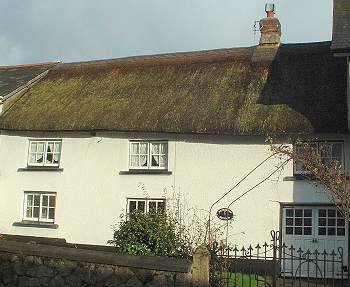|
Following traditions and folklore can mean that there is always something to celebrate.
Burns Night is on Sunday, January 25th but, why do we celebrate Burns’ birthday and forget Shakespeare’s?
Robert Burns, son of a poor farmer, was born in 1759 at Alloway, Strathclyde. In 1783 he began to write poems in traditional styles that were published chiefly in the Scottish dialect. His literary work, The Jolly Beggars, Holy Willie’s Prayer 1785 and more satire in Twa Dogs 1786 established his reputation and led to an outpouring of poetry. He was lionised by Edinburgh society – but didn’t take to this and returned to farming – but failed.
In 1789 he became an Excise officer and wrote Tam O’ Shanter a year later. Wine women and song were his interests – and his death in 1796 is said to have come about after sleeping off a drunken bout, at the roadside, and catching rheumatic fever. Four years after his death his friends were remembering and celebrating his birthday, 25th January with haggis for supper, after addressing the fair creature. Thus was born the relatively ‘new’ tradition of Burn’s Night that has spread around the world; and is not only celebrated by the Scots.
As for Shakespeare, does anyone recall his birthdate ?
Australia Day – January 26th (Celebrated Earls Court to Shepherds Bush) – has seemed to be a good day for a party since at least 1788. The event is said to commemorate the discovery of the continent but, perhaps, more accurately records the Day in 1788 when first penal colony was established with transportees landed at Botany Bay.
Transportation to Australia proved a godsend to the English after losing America but was phased out by the Aussie States 1840 – 1868. Nowadays long established Australian families try to trace their ancestors back to people who were transported for crimes such as highway robbery but also included others being punished for such heinous acts as damage done to canal workings.
January 27th is the date for anyone wishing to celebrate a renowned sleep-in – when it will be 306 years since Samuel Clinton woke up on the same date in 1698 in Midsomer Norton. He’d been sleeping, with only one interruption, since August 17th 1697 = 151 days and nights. The one interruption to his rest was on November 19th when he’d woken and asked for bread and cheese - and had used the guzunda Trying to wake him up during the long sleep -
servants stuck pins in him;
His friends took him out in a dogcart and rode it over rough ground;
The white witch of Exeter was summoned and cast a waking spell – it didn’t work;
Local herbalist came by and shoved smelling salts up his nose;
A wise woman burned rags under his nose – and set fire to his nightshirt.
Samuel slept on – and on - despite water thrown on him to douse the flames. Stones, thrown at the bedroom window, broke the glass but failed to wake him, a shotgun discharged – destroyed the bedroom door, but still he slumbered.
Within three months of his wakening, his wife became pregnant and it is believed they immigrated to America.
Sir Francis Drake What person, with an ounce of respect for folklore in them, could let January 28th pass by without celebrating the memory of a man who died in 1596, yet of whom it is said rides through the county still. Sir Francis Drake died on 28th January 1596 – leaving a legacy of folklore and witchcraft connections. In his other world he waits to be called back to help England. Around the Devon countryside his black carriage is still sometimes seen, drawn by headless horses, and he himself returns on occasion to ride a wild hunt with the hell hounds on Dartmoor. Drake is said to have sold his soul for supremacy at sea. Split sticks thrown by him into the channel became fire ships, routing the enemy - he made a date with the witches at Devil’s Point off Devonport whom, at his bequest, stirred up a storm for him that wrecked the Spanish ships. When Plymouth needed water, Drake rode to the moor, muttered magic incantation over a spring which then raced after him as he cantered home, leaving a channel that can still be seen.
Many following that channel on January 28th have reported hearing hooves pounding across the moor towards and past them, with nothing in sight. A ghostly encounter in daylight? There are stranger things.
On January 29th – 1884, Rosina Despard from Plymouth, after having left the county some years earlier was living in Pittville Circus Road – Cheltenham. On that fateful day it is said that she first spoke to a ghost that had frequently appeared in the house and was believed to be the restless spirit of a previous occupant, Imogen Swinhoe. The ghost was surprised to be addressed by a human but this was to be only the first of many such occasions. Rosina collared the ghost for a conversation whenever she could until, by about 1890, the ghost couldn’t stand it any more, and left home. The ghost of Imogen Swinhoe departed the house in a huff and took up residence a few doors further down the road. She remains there to this day – we know.
For any that still need something to celebrate before Candlemas, and who may have enjoyed bonfire night on November 5th, the last day of January is yours to enjoy.
Guido Fawkes was executed on this day in 1606 but, he was hanged, drawn and quartered not burned at the stake. Widely regarded as the only man to go to parliament with honest intent, it is perhaps only right that Guy, by tradition, should be twice celebrated each year.
|




